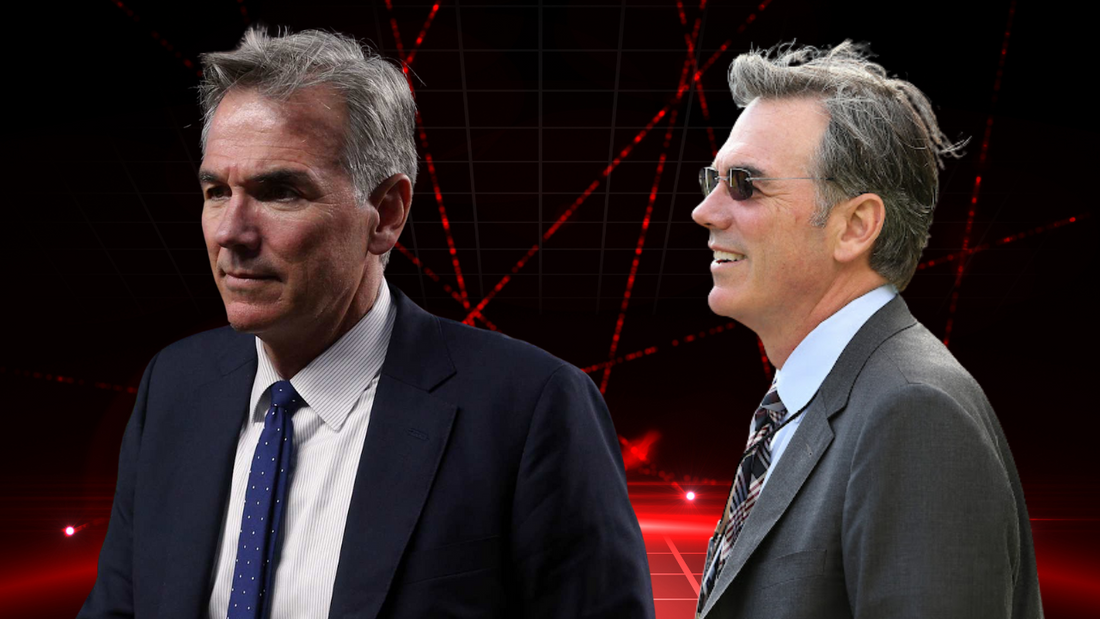
Why Didn't Billy Beane Go to Boston?
By Oliver Wiener August 10, 2024 03:27
Beane started his career as a player being picked in the first round of the now-defunct draft by the New York Mets in 1980. However, his career failed to fulfill its potential, and he moved into management. Beane was named GM of the Oakland Athletics in 1997 and tasked with trying to beat wealthier teams that controlled major league baseball. While in charge, the A's shifted to an innovative player analysis system dubbed sabermetrics, potentially leveraging statistical data to determine actual or potential player value.
The "Moneyball" approach of today is Beane's creation, famously chronicled in Michael Lewis' book, which hit shelves in 2003 and dove into how the A's managed to field winning teams despite their spending limits. Beane prioritized on-base percentage and other undervalued metrics to find talent in areas of the market that other teams were ignoring, leading the As to multiple playoff appearances despite limited financial resources.
Boston Red Sox opportunity
The owner of the Boston Red Sox, John Henry, was a part of new ownership and joined Beane to try to replicate his success after the A's were eliminated from the postseason in 2002. Boston presented him with a record setting five year, $12.5 million contract offer that would have beaten any executive's deal in the history of baseball. The Red Sox wanted to apply Beane's idea of modern analytics to transform their franchise into a contender and break the 86-year championship curse dubbed "the Curse of Bambino."
Had Beane landed in Boston, it would have meant running a team with far more money to spend than is typically present in Oakland. He was certainly enticed by the idea of helping to rebuild a storied team such as Stamford's, another passionate fan base, and expanding his creative tactics on an even grander scale.
Thought Process and Considerations
Offer be damned, Beane pulled out of a potential Red Sox job. Several things influenced his decision:
Commitment to the Athletics
The Athletics were geared toward Beane, who had invested so much time into creating a contender out of them. He built strong relationships with the players, staff, and everyone in Oakland, making him feel loyal to an organization that let his thought process run loose. Leaving the A's would mean turning his back on something he had spent years nurturing and relationships he'd worked hard to build.
Individual and Family Considerations
Ultimately, a huge part of Beane was his home life. He had a 12-year-old daughter from an earlier marriage, and to move her to Boston seemed something he could not do. Family was a big reason why Beane chose to stay put.
Technological and Organizational Differences
The makeup of the Red Sox clubhouse also played a role. While eager to follow Beane in embracing analytics, the Red Sox had a tradition and different operating style than the A's. Beane may well have realized that adapting to life at a bigger, more conventional club might pose problems for which he was ill-equipped. Maybe the chance to escape that pressure could have replaced a little bit of unwanted stress because regardless of how much success you bring to Boston, it likely is never enough.
Fear of Losing Control
The Oakland setup drew Beane, who had significant control over matters and could employ his plans without interference. There, he would likely have to operate within a larger organization and might not have control over all baseball operations. Beane might have been averse to losing some degree of autonomy; he was handsomely paid, yes, and certainly for the standards of his field, but Beane influenced team building that few other GMs in American pro sports enjoyed.
How it Impacts the Red Sox
If Beane had taken the job with Boston, it would have changed everything for that organization. His 'Moneyball' approaches, which he used so effectively in Oakland, might have worked on a team with a lot more money. This would have paved the way for a more data-centric method of identifying and building teams, which might well have hurried up the Red Sox's journey to success.
The Red Sox instead hired up from their front office candidate Theo Epstein, whose approach to running a team was influenced by many of the techniques Beane so adeptly employed. Ricks, Caserio, and the coaching staff overseen by David Campbell comprise a good scouting department but also represent an amateurish front office.
The Fallout: Altering The Course Of Two Entities
That was a momentous choice for both organizations, of course. The A's still worked with a shoestring budget, needing Beane to pull another rabbit out of the hat just to be competitive. Over the ensuing years, they made multiple playoff appearances, although they failed to advance past the deep rounds.
On the flip side, Epstein brought analytics to MLB and ran a model franchise with the Red Sox from 2004 to 2011. The team's success breathed life back into a franchise and changed how teams everywhere looked at drafting players.
It seems, retrospectively at least, that Beane somewhat embodies the reality of decision-making in professional sports. Though he might have passed on the chance to lead one of his league's historic franchises, his commitment almost never seemed short. The impact of his work in Oakland and around baseball is evident, as the "Moneyball" way has evolved into an indelible piece of regular team business.
Ultimately, Beane's dedication to the Athletics, further family concerns, and questions about whether they'd be a good cultural fit within the Red Sox organization played a factor in his decision. Although the Red Sox ended up being extremely successful, Beane still played a huge role in pushing baseball forward, and his innovative brand will continue to shape the game for years to come. His story is a testimony that success in life will come when an individual has well-established personal values and professional aspirations.


































































